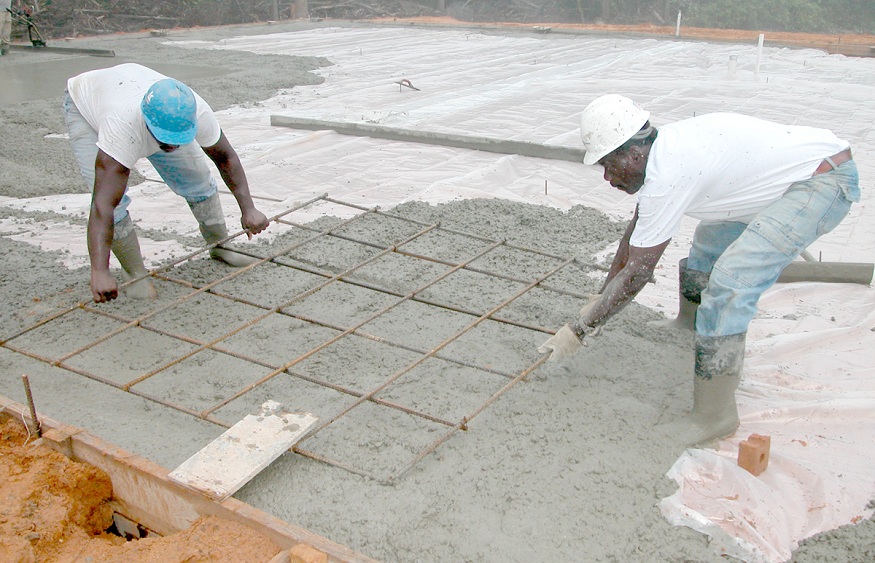
What is Best Building Material?
Constructing a house is a significant investment, and selecting the right materials is vital in ensuring a robust, durable, and enduring structure that stands the test of time. With the vast array of house making materials available in the market today, homeowners can often find themselves overwhelmed by the multitude of options and their respective advantages and disadvantages. Below, we aim to simplify this decision-making process by providing a comprehensive guide to various house building materials.
Why should we build strong houses?
There are numerous reasons, but the most important ones revolve around the safety, comfort, and well-being of those living there. A well-built house is a sanctuary where families can feel secure and at ease.
● Resilience to Natural Disasters: Earthquakes, hurricanes, and floods can cause significant damage to homes that are not built to withstand such events. A sturdy house can better endure these forces, minimizing the risk of injury or loss of life and reducing the financial burden of repairs and rebuilding.
●Less maintenance: High-quality materials and construction techniques result in a more durable home that requires less frequent repairs, saving homeowners time and money in the long run. This durability also contributes to a longer lifespan, meaning the house can be a family’s home for generations.
●Energy efficiency: Using the right insulation materials and construction methods, homes can be more energy-efficient, lowering utility bills and reducing carbon footprint. This is not only beneficial for the environment but also for the homeowner’s wallet. Furthermore, a well-built house offers better structural integrity. This means that the home is less likely to develop issues such as cracks, leaks, or other structural problems, ensuring the safety and well-being of its occupants.
● Increase Home Value: A strong house also retains its value better, making it a wise investment for homeowners. Building strong houses contributes to the overall aesthetic appeal and quality of a neighborhood. A community filled with well-constructed homes is more attractive to potential buyers and can lead to higher property values for everyone.
Material Required for House Construction
When building a house, it is essential to consider various factors, such as location, climate, and budget, to determine the most suitable materials. Here is a list of materials:
- Cement is an essential material for binding and strengthening the overall structure.
- Bricks are primarily used for constructing walls and partitions.
- Steel plays a crucial role in reinforcement, enhancing the durability of the structure.
- Sand is a key component of mortar, which holds bricks and other elements together.
- Aggregates are used in concrete to provide strength and stability.
- Wood is commonly used for doors, windows, and framing due to its versatility and aesthetics.
- Roofing materials, such as shingles or metal, protect the house from the elements.
- Insulation materials improve energy efficiency by reducing heat transfer.
- Glass is used for windows and other openings, allowing natural light to enter the home.
- Tiles are popular for flooring and walls, offering durability and various design options.
- Gypsum board is widely used for interior walls and ceilings, providing a smooth and easily paintable surface.
Choosing the Right Materials for Your House
When selecting materials for your house, consider the following factors:
● Durability: For instance, bricks and concrete blocks offer excellent durability and insulation, while steel provides superior strength and resistance to natural disasters. Wood is a versatile and sustainable option that adds warmth and character to a home, whereas glass and metal can create a modern and sleek appearance.
● Cost: While some materials may have a higher upfront cost, they could save you money in the long run through lower maintenance expenses or increased energy efficiency. It’s essential to weigh the initial investment against the long-term benefits to make the most cost-effective choice.
● Sustainability: Opt for eco-friendly options, such as reclaimed wood, recycled metal, or materials with low embodied energy, to minimize the environmental impact of your home. Additionally, consider the maintenance requirements of each material. For example, some materials, like vinyl siding or metal roofing, require minimal upkeep, while others, like wood, may need regular maintenance to prevent decay and damage.
● Weather: it’s crucial to consider the local climate and building codes when selecting materials. Certain materials may perform better in specific environments or be required to meet regional construction standards.
There is no one-size-fits-all answer to the question of the best building material. A combination of materials may be the best solution to ensure a robust, energy-efficient, and aesthetically pleasing home.
Tata Steel Aashiyana: Your Trusted Partner for Home building Materials
Embarking on the journey of building a new home can be exciting and overwhelming, especially when choosing the right building materials. If you are unsure about the most appropriate materials for your project, it’s a great idea to consult with industry experts, such as those at Tata Steel Aashiyana. Their wealth of knowledge and experience will prove invaluable in guiding you toward a well-informed decision.
The team at Tata Steel Aashiyana understands that each home has unique requirements based on location, climate, and design preferences. By taking these factors into account, they can help you select the best materials that not only align with your vision but also ensure the long-term durability and performance of your home.
In addition to providing expert advice, they also offer a range of high-quality building materials to suit various budgets and requirements. This makes it even more convenient for you to make the right choices for your home. By collaborating with Tata Steel Aashiyana, you can enjoy knowing your home is being built with the most suitable materials tailored to your specific needs.


